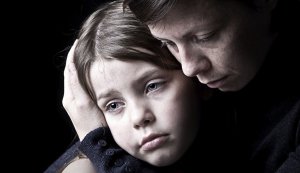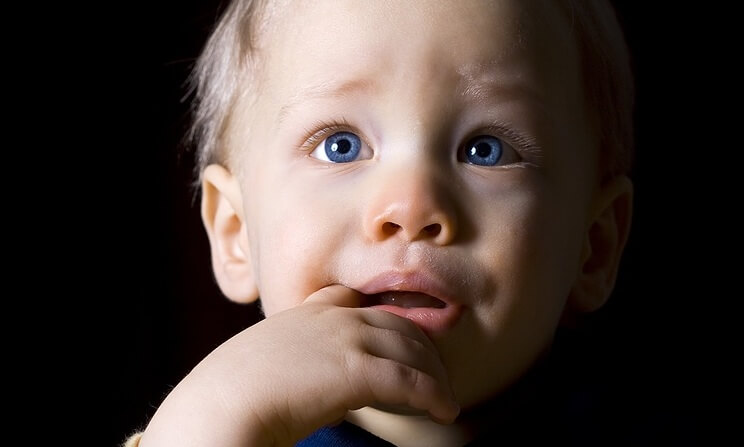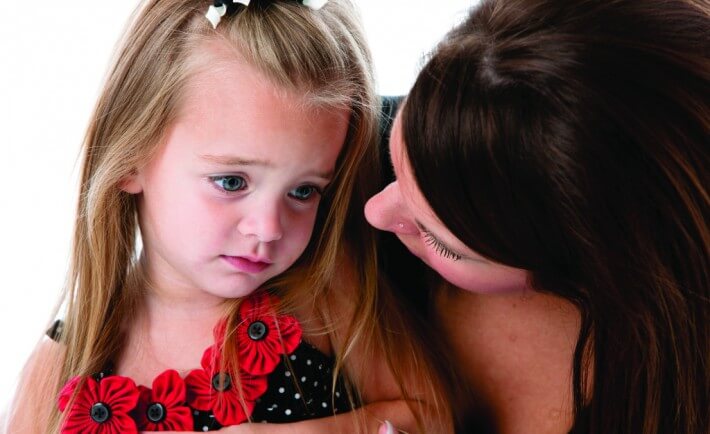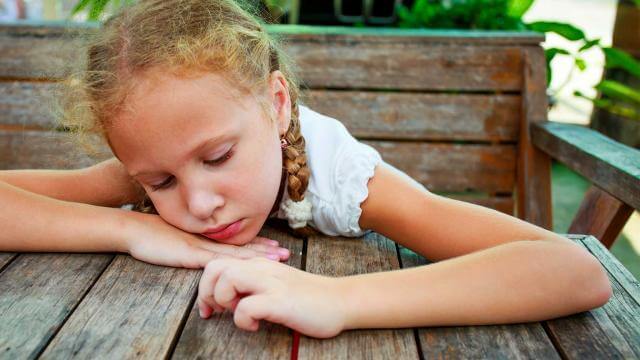Depression Is Not Child's Play

Depression is a problem that affects many people. People are more or less susceptible to suffering from it depending on their lifestyle, ability to solve problems effectively, and life experiences. It’s an illness that scars, inhibits, and hurts people. But does it only present in adults?
“The range of human experience includes feeling sad — but the experience of depression, feeling extreme sadness, hopelessness or helplessness is not a healthy range of human emotion.”
-Deborah Serani-
We tend to think that depression only affects adults, but children can suffer from it, too. This is also known as pediatric or childhood depression, and the symptoms are very different from those of adults. Remember, children have a hard time controlling their emotions, more than anything because they’re still new to it, and the areas of self-control in the brain aren’t completely developed yet.
Even babies can suffer from depression
If it was already surprising that children can suffer from depression, imagine it happening to a baby. But how could a baby experience this disorder? In such cases, there could be a clear genetic component, although if the mother had depression or postpartum depression, that could also have repercussions on the baby.

When a baby suffers from depression, symptoms include crying and trouble eating. In general, babies don’t have problems eating and their crying has a specific goal: a physiological need, discomfort, or pain. If these things present issues and the symptoms get worse, it could be a case of infant depression.
Another warning sign is lethargy. Babies are normally active; they cry, move, babble, and explore curiously. When they stop doing these things, seem to always be tired, are inactive, or have a lifeless look in their eyes, this is cause for concern. This isn’t normal for a baby.
Babies with depression don’t smile, respond to stimuli, or react if they’re left with a stranger. They’re in a continuous state of apathy.
Is it strange for a baby to suffer from depression? It doesn’t occur very frequently, although the symptoms might just be overlooked until they’re more pronounced in childhood. At that point, they’re more evident, although they’re still very different from those of adults.
Symptoms of depression in children
It’s very important for parents to pay attention to any possible indication that their child is unwell or sadder than usual. Sometimes, work and “adult problems” can make the child’s sadness seem less important, or like a simple mood swing that’s normal for their age.

If they don’t get help, the depression can get worse as they get older. That’s why it’s so important to recognize some of the symptoms that might be affecting them that could indicate childhood depression.
- Lack of interest in playing with toys or socializing with other children. It’s not normal for a child, who should be experimenting and adapting to the world, to not have any interest in playing and making friends. Nor is it normal for them to be disinterested in school, since it’s new to them and they generally have a huge thirst for knowledge.
- Low or lack of self-esteem. If you start to notice that your child feels like they’re not good at anything, or even says things like “I can’t do it,” “I’m no good at that,” or “I’m stupid,” it’s a clear warning sign. Children experiment and make mistakes, but that doesn’t make them feel useless or stupid. If it does, there could be a serious problem.
- Isolating themselves in their room and avoiding contact with family. If your child spends a lot of time in their room, whether they’re reading or doing other things, and they avoid contact with other members of the family, that could be a warning sign.
- They have aches and pains without any apparent cause. It’s very hard for children to express their emotions and identify them because they’re still learning how to manage them. If they start to sleep too much, have constant stomachaches, or some other part of their body is always hurting and there’s no reason for it, they might be depressed.
“One out of every 33 children could suffer from depression.”
-Center for Mental Health Services-
To be sure that it’s a serious problem and not a passing situation, the symptoms must be present for a long time. But the most important thing is to seek professional help if you’re not sure or these symptoms present chronically. The sooner you identify the problem, the sooner you can put an end to it. Because depression is not child’s play.

Depression is a problem that affects many people. People are more or less susceptible to suffering from it depending on their lifestyle, ability to solve problems effectively, and life experiences. It’s an illness that scars, inhibits, and hurts people. But does it only present in adults?
“The range of human experience includes feeling sad — but the experience of depression, feeling extreme sadness, hopelessness or helplessness is not a healthy range of human emotion.”
-Deborah Serani-
We tend to think that depression only affects adults, but children can suffer from it, too. This is also known as pediatric or childhood depression, and the symptoms are very different from those of adults. Remember, children have a hard time controlling their emotions, more than anything because they’re still new to it, and the areas of self-control in the brain aren’t completely developed yet.
Even babies can suffer from depression
If it was already surprising that children can suffer from depression, imagine it happening to a baby. But how could a baby experience this disorder? In such cases, there could be a clear genetic component, although if the mother had depression or postpartum depression, that could also have repercussions on the baby.

When a baby suffers from depression, symptoms include crying and trouble eating. In general, babies don’t have problems eating and their crying has a specific goal: a physiological need, discomfort, or pain. If these things present issues and the symptoms get worse, it could be a case of infant depression.
Another warning sign is lethargy. Babies are normally active; they cry, move, babble, and explore curiously. When they stop doing these things, seem to always be tired, are inactive, or have a lifeless look in their eyes, this is cause for concern. This isn’t normal for a baby.
Babies with depression don’t smile, respond to stimuli, or react if they’re left with a stranger. They’re in a continuous state of apathy.
Is it strange for a baby to suffer from depression? It doesn’t occur very frequently, although the symptoms might just be overlooked until they’re more pronounced in childhood. At that point, they’re more evident, although they’re still very different from those of adults.
Symptoms of depression in children
It’s very important for parents to pay attention to any possible indication that their child is unwell or sadder than usual. Sometimes, work and “adult problems” can make the child’s sadness seem less important, or like a simple mood swing that’s normal for their age.

If they don’t get help, the depression can get worse as they get older. That’s why it’s so important to recognize some of the symptoms that might be affecting them that could indicate childhood depression.
- Lack of interest in playing with toys or socializing with other children. It’s not normal for a child, who should be experimenting and adapting to the world, to not have any interest in playing and making friends. Nor is it normal for them to be disinterested in school, since it’s new to them and they generally have a huge thirst for knowledge.
- Low or lack of self-esteem. If you start to notice that your child feels like they’re not good at anything, or even says things like “I can’t do it,” “I’m no good at that,” or “I’m stupid,” it’s a clear warning sign. Children experiment and make mistakes, but that doesn’t make them feel useless or stupid. If it does, there could be a serious problem.
- Isolating themselves in their room and avoiding contact with family. If your child spends a lot of time in their room, whether they’re reading or doing other things, and they avoid contact with other members of the family, that could be a warning sign.
- They have aches and pains without any apparent cause. It’s very hard for children to express their emotions and identify them because they’re still learning how to manage them. If they start to sleep too much, have constant stomachaches, or some other part of their body is always hurting and there’s no reason for it, they might be depressed.
“One out of every 33 children could suffer from depression.”
-Center for Mental Health Services-
To be sure that it’s a serious problem and not a passing situation, the symptoms must be present for a long time. But the most important thing is to seek professional help if you’re not sure or these symptoms present chronically. The sooner you identify the problem, the sooner you can put an end to it. Because depression is not child’s play.

This text is provided for informational purposes only and does not replace consultation with a professional. If in doubt, consult your specialist.







